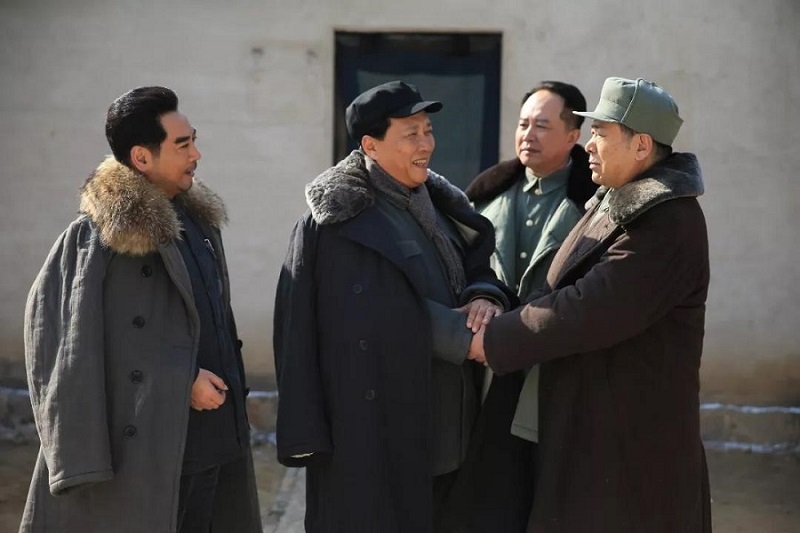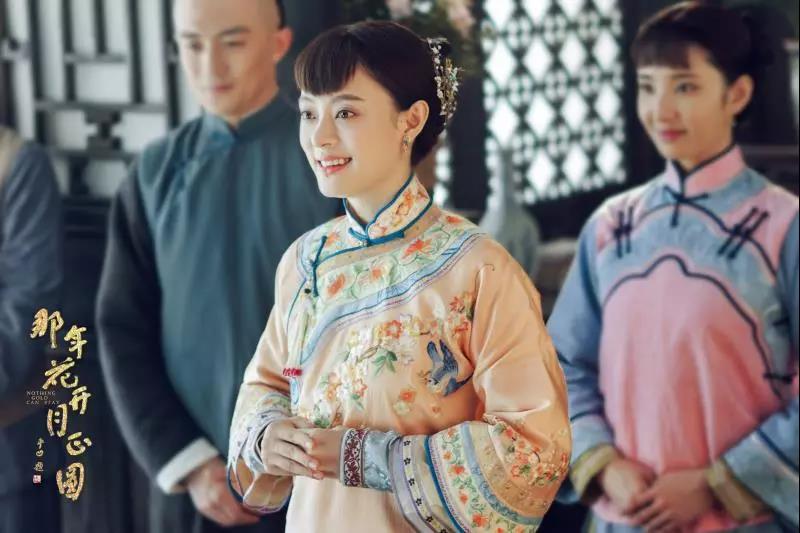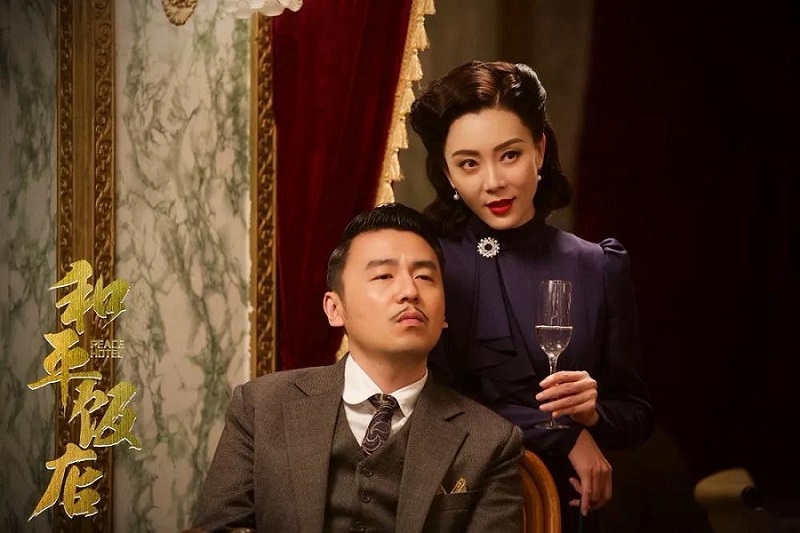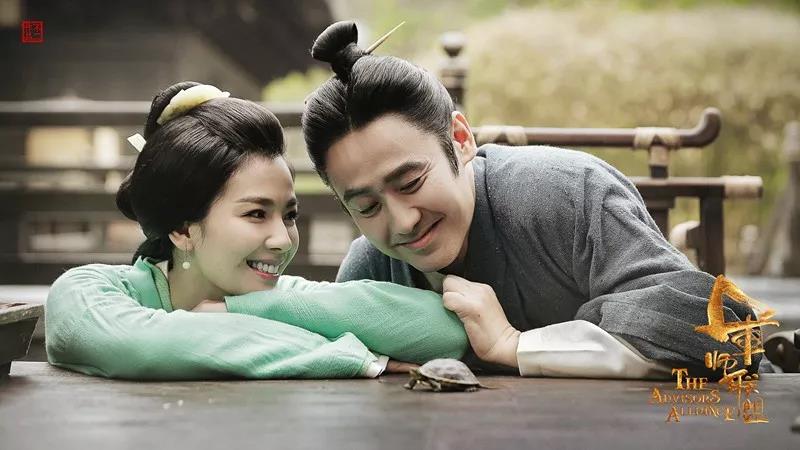Insights into the China TV Market from Magnolia Awards Submission (Part II)
The creation of Chinese TV dramas after 2017 is not only highlighted by numerous realism works, but also presents a good trend of extensive blooming and refining. In the list of the submissions for the Magnolia Awards at the 24th Shanghai TV Festival, outstanding works in genres such as Anti-Japanese War, history, and costume, also account for a large proportion, showing the diversity of Chinese TV drama creation. The active exploration in terms of new subjects and narrative styles also keeps the never-closing Chinese theater in pace with the times.
Common blooming
Present new characters and contemporary styles
In 2017, while the Chinese TV dramas welcomed common blooming, the creators have consciously reflected the spirits and characteristics of the new era by rendering individual life and character a rich social property.
Change the World
The TV series Change the World has recreated the magnificent historical panorama before and after the founding of New China with full and faithful records, showing the great wisdom and vision of the Central Party Committee represented by revolution leaders such as Mao Zedong and Zhou Enlai in many major decisions. At the same time, it manages to show the audience lesser-known aspects of the leaders. For instance, facing the sacrifice of Mao Anying, though Mao Zedong doesn’t agree to send his son’s body back home, he silently collects his son’s coat, as a way to memorize him. Until many years after the decease of Mao Zedong, the coat is finally discovered. The TV drama Original Aspiration, based on the actual deeds of the “General Farmer” Gan Zuchang, has also portrayed an amiable and respectable revolution pioneer. Watch such TV series, the audience was greatly touched by those great men and forerunners.
Nothing Gold Can Stay
The plot of “leading characters winning both love and career’, which is often considered by the audience as “unrealistic”, did not appear in the 2017 drama Nothing Gold Can Stay. In the late Qing Dynasty, Zhou Ying (by Sun Li), slick, courageous, and talented in doing business, is the richest woman in Shaanxi. With her own efforts, she supports the entire Wu family and carries it forward. On her, the audience could see the features of a modern office lady, who believes that “no one can succeed by chance.” Moreover, the storylines such as refusal to counterfeit, and dispute of stock rights can be seen as parts of contemporary trade wars. Although it is not a real-life drama, the audience of Nothing Gold Can Stay can still capture the characteristics of contemporary people in the play and seek strong emotional resonance.
Superiority strategy
Explore new subjects and narrative styles
Compared with previous years, the 2017 works in genres such as Anti-Japanese War, history, and costume have achieved a leap in quality, showing up in front of the viewers with a fresh look. Especially under the guidance of superiority strategy, practitioners have made active exploration concerning narrative styles and creation techniques.
Peace Hotel
As one of the most popular TV drama types, spy war, or forensics crime, is usually faced with more rigorous requirements from the audience. However, both Peace Hotel and Operation Moscow have won high reputation. Unlike conventional spy war dramas that often use scenes to promote the development of stories, Peace Hotel has ingeniously arranged all forces in one big scene – the Peace Hotel, to present cooperation and combat. And the famous Peace Hotel has also become a microcosm of the world political structure. Operation Moscow has also boldly innovated the traditional forensics crime dramas, moving the “Chinese-Russian train robbery” that was once listed as the top ten legendary cases in China to the screen. The entire crew even went to Russia for filming. The actors of both China and Russia worked together to restore the native customs of Moscow in the 1990s.
The Advisors Alliance
Innovation is the life of literary creation. The emergence of a series of television dramas such as Peace Hotel with new themes and narrative shows the strength of China’s TV drama creation and also satisfies viewers’ demand for novelty and diversity. For example, The Advisors Alliance has opened up a new perspective in the story of the Three Kingdoms, showing a magnificent post-Three Kingdoms era through the ups and downs of the advisor Sima Yi. Featuring historical fantasy, both Tribes and Empires and Nirvana in Fire 2 have abandoned the intriguing pattern commonly found in imperial dramas, and emphasized on personal growth, family conflicts, and homeland cause.
Chinese theater
Create new Chinese stories and Chinese faces
This year coincides with the 60th anniversary of the birth of Chinese TV dramas. During the development course of six decades, we have accumulated glorious tradition and invaluable experience acknowledged by all, that is, to regard people as the center, realism as the subject, and the public as the most important “protagonist” of artistic expression, and build up a never-closing Chinese theater.
In recent years, several so-called hit dramas that were separated from history or reality have appeared, such as those depicting lavish urban life, the infighting among imperial concubines and so on. The works that blindly pursue eye-catching effects and ignore social effects will not only be discarded by the audience, but will also adversely affect the image and healthy development of Chinese TV dramas.
From the submission list of Magnolia Awards – TV drama competition this year, we can see that “telling Chinese stories and demonstrating Chinese spirit” is always the right path for the creation of Chinese TV dramas. The richness of “Chinese faces” in the new era have also provided artists with unprecedented story materials. To pursue common blooming and superiority-orientation, set high goals and climb high hills, is precisely the direction and development trend of contemporary TV drama creation.







